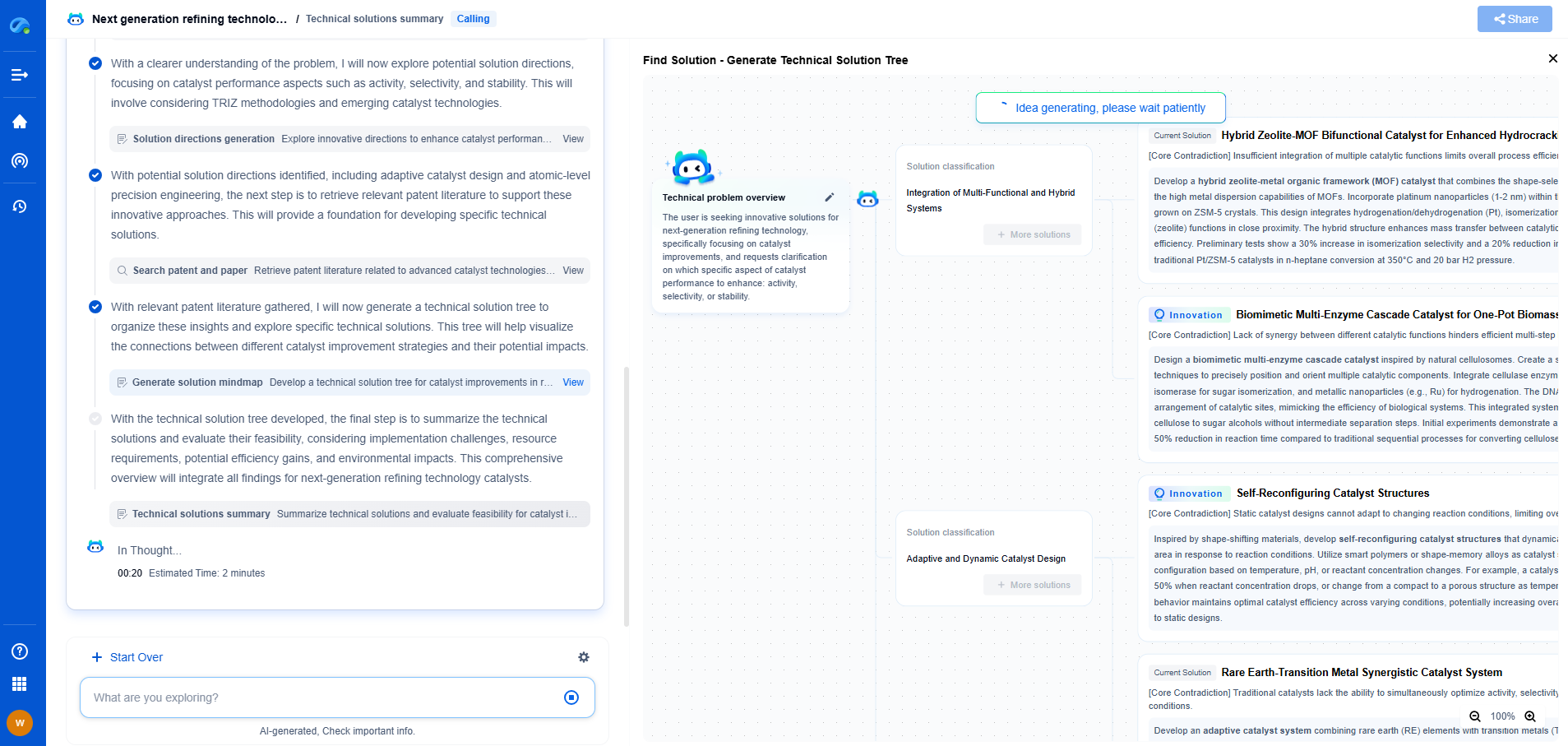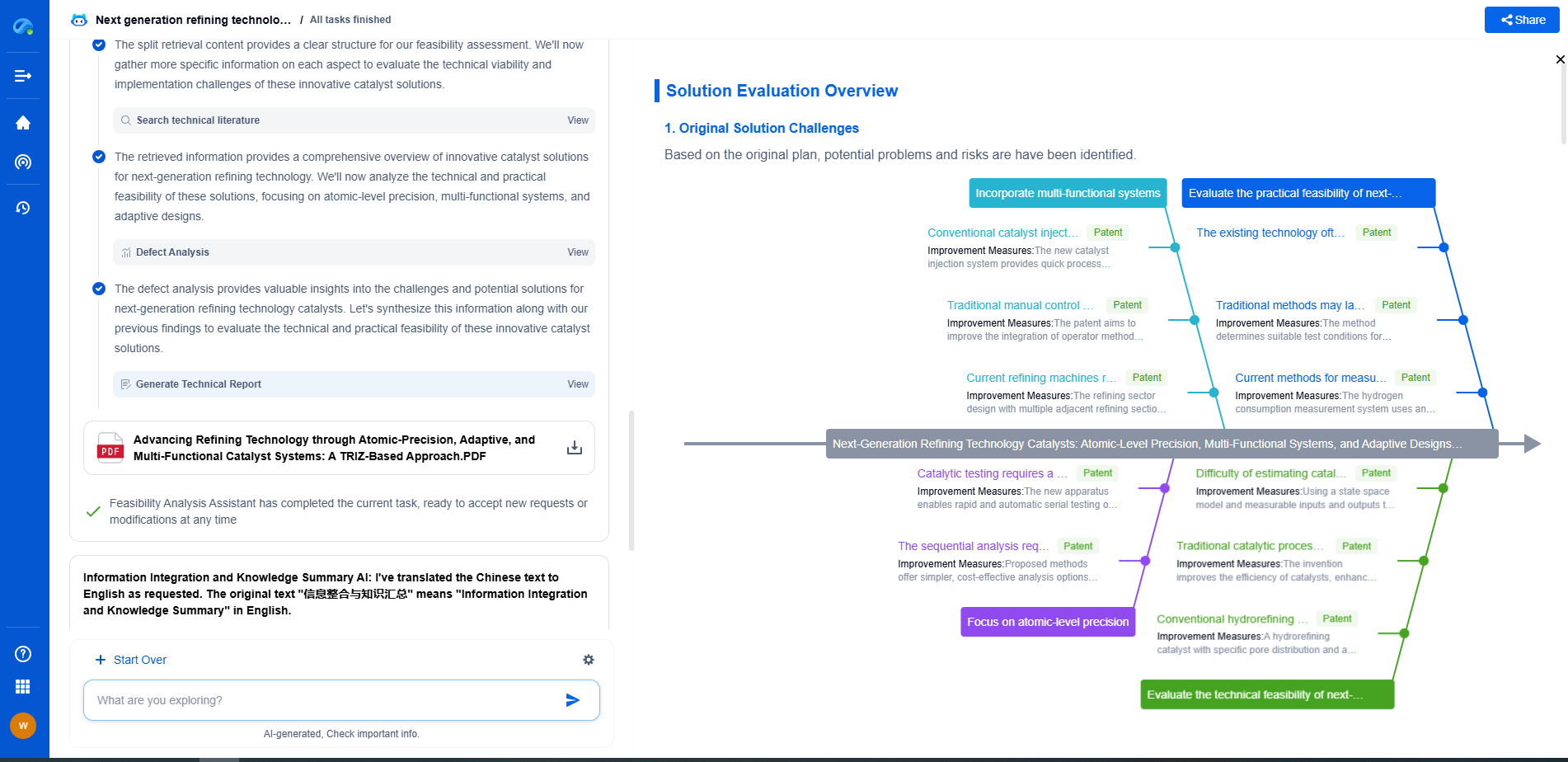How to Stay Compliant with Pipeline Integrity Management Regulations
JUN 20, 2025 |
Pipeline integrity management is crucial for ensuring the safety, reliability, and efficiency of pipelines that transport hazardous materials. These pipelines are subject to various regulatory frameworks designed to mitigate risks and prevent accidents. Staying compliant with these regulations is not just a legal obligation but a responsibility towards environmental protection and public safety.
Know the Applicable Regulations
The first step in staying compliant is understanding the specific regulations that apply to your operations. In the United States, for example, the Pipeline and Hazardous Materials Safety Administration (PHMSA) oversees regulations related to the safe and reliable transportation of energy products. Internationally, different countries have their own set of rules and standards. Familiarize yourself with both national and local regulatory requirements to ensure your compliance strategy is comprehensive.
Develop a Comprehensive Integrity Management Plan
A well-documented integrity management plan (IMP) is fundamental in maintaining compliance. This plan should outline procedures for regular monitoring, inspection, and maintenance of pipeline systems. It should also detail risk assessment processes, methods for identifying potential threats, and strategies for mitigating these risks. Ensure that your IMP is reviewed and updated regularly to reflect changes in regulations or operational practices.
Implement Advanced Monitoring and Inspection Technologies
Utilizing advanced technologies can significantly enhance your ability to monitor and inspect pipeline integrity. Smart pigging, remote sensing, and real-time monitoring systems are some of the technologies that can help detect anomalies and prevent potential failures. Investing in these technologies not only aids in compliance but also improves the overall safety and efficiency of your pipeline operations.
Conduct Regular Training and Drills
Personnel involved in pipeline operations should be well-trained in both routine procedures and emergency response. Regular training sessions and drills are essential to ensure that all staff members understand the regulatory requirements and are capable of responding effectively in case of an incident. This not only helps maintain compliance but also minimizes the risks of human error during operations.
Maintain Thorough Documentation
Documentation plays a critical role in demonstrating compliance with pipeline integrity management regulations. Keep detailed records of inspections, maintenance activities, risk assessments, and any incidents that occur. This documentation should be readily accessible for regulatory audits and reviews. Proper record-keeping not only satisfies regulatory demands but also provides valuable insights into the performance and condition of your pipeline systems.
Engage with Regulatory Agencies
Maintaining open communication with regulatory agencies can be beneficial in staying compliant. Participate in forums and workshops to stay informed about changes in regulations and industry best practices. Engaging with regulators also provides an opportunity to seek guidance and clarification on compliance-related issues, helping you avoid potential regulatory pitfalls.
Regularly Review and Audit Compliance Programs
Regular reviews and audits of your compliance programs are essential to ensure that they remain effective and up-to-date. Internal audits should be conducted periodically to assess the effectiveness of your integrity management plan and identify any areas for improvement. Consider engaging third-party experts for an independent review to gain objective insights and recommendations.
Stay Informed about Industry Trends
The pipeline industry is constantly evolving, with new technologies, practices, and regulations emerging regularly. Staying informed about these trends can help you anticipate changes and adapt your compliance strategies accordingly. Subscribe to industry publications, attend conferences, and participate in professional networks to keep abreast of the latest developments.
Conclusion
Staying compliant with pipeline integrity management regulations is vital for the safe and efficient operation of pipeline systems. By understanding the applicable regulations, developing a robust integrity management plan, leveraging advanced technologies, and maintaining thorough documentation, companies can not only meet regulatory requirements but also enhance the safety and reliability of their operations. Regular training, engagement with regulatory agencies, and staying informed about industry trends further support compliance efforts, ensuring that pipelines continue to serve as a safe and reliable means of transporting essential materials.
Transform the Way You Innovate in Pipeline Technology—with AI-Powered Intelligence
From corrosion-resistant materials to smart monitoring systems and advanced flow control mechanisms, the pipeline industry is undergoing rapid technological transformation. Yet keeping up with evolving engineering solutions, regulatory landscapes, and competitive patents can be a major bottleneck for R&D and IP teams.
Patsnap Eureka is your AI-powered research companion—built specifically for professionals in high-tech and infrastructure domains like pipeline technology. Whether you're designing high-pressure transport systems, assessing trenchless installation innovations, or safeguarding proprietary flow assurance solutions, Eureka provides real-time insights into global patent trends, emerging technologies, and R&D intelligence—all in one intuitive interface.
Empower your team to innovate faster, reduce technical blind spots, and stay ahead of industry shifts. Discover Patsnap Eureka today and bring clarity and confidence to your pipeline technology decisions.
- R&D
- Intellectual Property
- Life Sciences
- Materials
- Tech Scout
- Unparalleled Data Quality
- Higher Quality Content
- 60% Fewer Hallucinations
Browse by: Latest US Patents, China's latest patents, Technical Efficacy Thesaurus, Application Domain, Technology Topic, Popular Technical Reports.
© 2025 PatSnap. All rights reserved.Legal|Privacy policy|Modern Slavery Act Transparency Statement|Sitemap|About US| Contact US: help@patsnap.com

